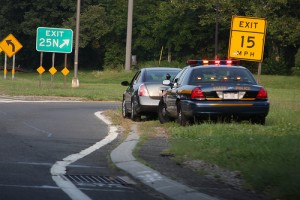Supreme Court Drunken Driving Case Implicates Police Practices
Posted
24 Jun 2016 in Case Notes, Commentary
As a result of the Supreme Court’s decision in Birchfield v. North Dakota in states that criminalize the refusal to take a blood alcohol concentration tests, officers should offer only a breath (not blood) test unless they have a warrant.
The Court held 5-3 that states may criminalize an arrestee’s refusal to take a warrantless breath test. If states criminalize the refusal to take a blood test police must obtain a warrant. The State and Local Legal Center (SLLC) filed an amicus brief arguing that states should be able to criminalize warrantless refusal to consent when a person is arrested upon suspicion of drunken driving.







